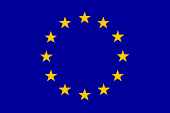
The 2016 installement of "Open Science goes GEO" includes a session on "Public Sector Information towards Open Science" with contribution from FOSTER, and a Short Course on Open Access.
Commissioner @Moedas supports #openaccess and so do we! http://t.co/ZXugz6SQ1y pic.twitter.com/wiWS06CJAk
— Digital for Science (@ICTscienceEU) October 15, 2015
EGU2016 Session ESSI3.4
Conveners: Berit Arheimer , José Miguel Rubio Iglesias , Stefano Nativi , Martin Hammitzsch
Session Title: Open Access to Research Data and Public Sector Information towards Open Science
Many networks, initiatives, projects and communities are addressing the key drivers and barriers to Open Access to research data and Public Sector Information (PSI).
These efforts are often fragmented by discipline, location, involved stakeholders (publishers, funders, researchers, etc.), as well as other boundaries, and often conducted independently or with limited contact with the overall scientific ecosystem.
This session offers a multi-disciplinary space for members interested in Open Access to research data and PSI, to identify good practices and areas where further support is required, as well as to share common solutions for the challenges that are hindering Open Access and data preservation issues in research practice, in relation to stakeholder values, inter-relationships, and challenges in different national contexts.
Open Science is not limited to papers, but encompasses scientific research results in general, including figures, data, models, algorithms, software, tools, notebooks, laboratory designs, recipes, samples and much more. Furthermore, it covers the communication, review, and discussion of research results and considers changing needs regarding incentives, quality assessment, metrics, impact, reputation, grants and funding. Thus Open Science includes licensing, policy-making, infrastructures and scientific heritage.
Topics may include, but are not limited to, challenges related to infrastructure and technology (e.g. hardware and software assets, human resources, procedures for managing, training and supporting continuous operation and evolution), as well as legal, ethical, institutional and policy issues relating to sharing and providing Open Access to research data and PSI from a variety of sources, and in a variety of formats.
Reports and experiences from participants in the Horizon 2020 Open Research Data Pilot (best practices, lessons learnt, Data Management Plans, etc.) are of special interest.
Invited and confirmed speaker: Jean-Noël Thépaut, ECMWF, on Copernicus Climate Change Services (C3S).
Poster Presentation: How FOSTER supports Open Science Training in the GeoSciences
Thursday 21 April from 08:00–19:00, Hall A.485 (17:30–19:00 Author attendance time)
Belmont Forum calls for #openaccess to #data from #global change #research #openscience #openinnovation https://t.co/Q34ULH4mrT
— Carlos Moedas (@Moedas) February 22, 2016
Short Course SC3: The ins and outs of open access publishing
Wednesday 20 April from 13:30–15:00 , room -2.85 at the Austria Center, Vienna
This workshop will provide background information and practical tips on publishing research open access. Among other topics, we will discuss the different types of open access publishing, creative commons licences, and permissions for archiving manuscripts online. The preliminary schedule is as follows:
Program:
* What is open access? by Martin Rasmussen, Director of Copernicus Publications
* Philosophy of EGU open access journals, by Hubert Savenije, Chair of the Publications Committee of EGU
* Information on open access publishing with traditional publishers (tbc)
* Requirements for open access publishing from funding agencies (e.g. Horizon2020) by Ivo Grigorov, FP7 FOSTER Consortium
* Question time
Better data management enhances whole system science. #RDAPlenary https://t.co/TrBwzKqF8k
— Belmont Forum E-Inf (@BFE_Inf) February 17, 2016
 Unless otherwise stated, all materials created by the FOSTER consortium are licensed under a CREATIVE COMMONS
ATTRIBUTION 4.0 INTERNATIONAL LICENSE.
Unless otherwise stated, all materials created by the FOSTER consortium are licensed under a CREATIVE COMMONS
ATTRIBUTION 4.0 INTERNATIONAL LICENSE.
 This project has received funding from the European Union’s Seventh Framework Programme for research,
technological development and demonstration under grant agreement no 612425.
This project has received funding from the European Union’s Seventh Framework Programme for research,
technological development and demonstration under grant agreement no 612425.